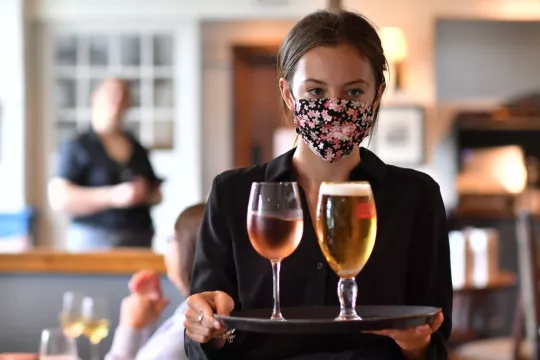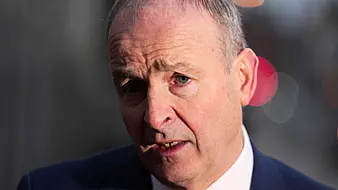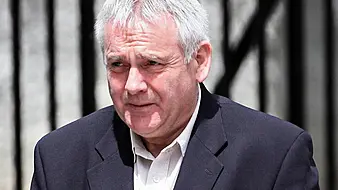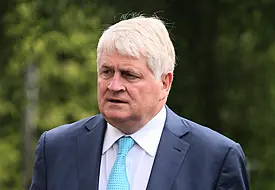The Health Service Executive raised concerns with the Cabinet about the “practicality” of plans put forward by the National Public Health Emergency (Nphet) to limit indoor dining to fully vaccinated people, while Ministers expressed fury over the proposal even though it was accepted.
Sources told The Irish Times that the HSE's concerns centred around the “practicality” of the plan.
Opposition parties have called for an independent review of Nphet's projections on the impact of the Delta variant in terms of hospitalisations and deaths, while some Ministers have also asked for a review.
On Tuesday, Cabinet agreed to cancel the planned return of indoor dining on July 5th and instead aim to introduce a viable vaccine certificate system by July 19th.
The hospitality sector has unanimously criticised the move, with publicans and restaurateurs dismayed at the latest delay.
Intergenerational divide
A number of Cabinet sources told The Irish Times that the move will be a “hard sell” and will result in an intergenerational divide.
Restaurants Association of Ireland chief executive Adrian Cummins questioned the legality of any vaccine pass and how it would be regulated.
The Licensed Vintners Association (LVA) said it would reject any move to separate out the vaccinated from the non-vaccinated.
The LVA described the plan as “ridiculous and unworkable”.
Speaking in the Dáil, Labour leader Alan Kelly described the plan as “absolutely bananas”, discriminatory, unenforceable and “amateur hour”.
It is understood a small number of senior Government politicians were informed that Nphet were examining the new vaccination plan over the weekend, however, the vast majority of Cabinet were taken by surprise at the development.
Nphet has warned the Government that there is a risk of a “significant” fourth wave of infection due to the highly transmissible Delta variant.
Nphet modelling
In a letter to Government, Nphet first looked at projected Covid cases numbers, hospital admissions, intensive care unit (ICU) admissions and deaths from July 1st-September 30th if there was no Delta variant, estimating 21,000 cases, 405 hospital (55 ICU) admissions and 80 deaths.
Four other scenarios ('optimistic', 'central 1', 'central 2', and 'pessimistic') are then examined, each based on moderate/high levels of indoor social mixing and conservative/higher estimates for Delta's transmissibility.
Some Ministers have supported opposition calls for an independent review of Nphet's modelling.
Speaking on RTÉ Raidió na Gaeltachta on Tuesday, Green Party Minister of State Ossian Smyth suggested the Government would seek a second independent opinion from the likes of the World Health Organisation.
A Green Party spokesman said Mr Smyth had been asked if independent scrutiny would be worth getting and that he “gave his personal advice that it would”.
Taoiseach Micheál Martin has said an independent review is unlikely.
Could not ignore
Meanwhile, Minister for Transport Eamon Ryan has said the Government could not have ignored the scientific advice presented to them by Nphet on Monday night.
“We have a responsibility to listen to them,” he told RTÉ radio’s Today with Claire Byrne show.
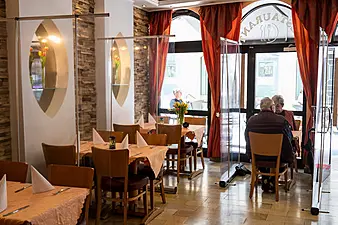
Mr Ryan acknowledged that modelling was not certain and was built on assumptions, but he pointed out that the Government had been warned by Nphet last October about the possibility of a further wave of Covid-19 but they did not act immediately. “Their analysis was correct,” Mr Ryan said.
The modelling details presented late on Monday had been a big shock, he said, but added that all the measures which have been and will be introduced in relation to Covid-19 were temporary.
The Minister said there were three options: to take a risk and ignore the advice, to go “hyperconservative”, or to find a mechanism where hospitality could be brought back with a “managable risk”. The Government had to look at the third option and seek mechanisms that were safe, which was what they would do over the next 19 days, he added.
He also said Nphet would speak with the Opposition about questions raised regarding their projections and recommendations, and then share their analysis.
